Publications
Articles, publications, books, tools and multimedia features from the U.S. Institute of Peace provide the latest news, analysis, research findings, practitioner guides and reports, all related to the conflict zones and issues that are at the center of the Institute’s work to prevent and reduce violent conflict.
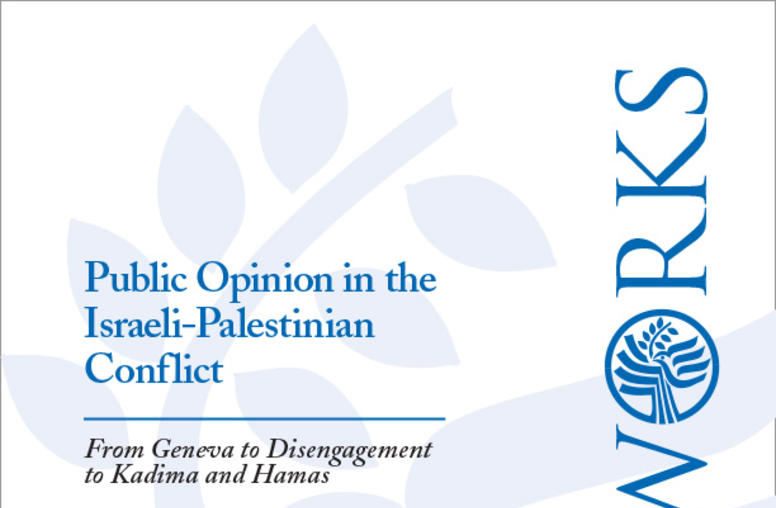
Public Opinion in the Israeli-Palestinian Conflict: From Geneva to Disengagement to Kadima and Hamas
Israeli analysts and pundits enjoy quoting Henry Kissinger’s assertion that "Israel has no foreign policy, only domestic policy." Kissinger’s comment, while stressed too strongly, captures well the common understanding among political scientists and international relations specialists that domestic considerations have a significant effect on foreign policy. This monograph focuses on one particular domestic imperative of utmost importance in periods of conflict and its resolution: public opini...
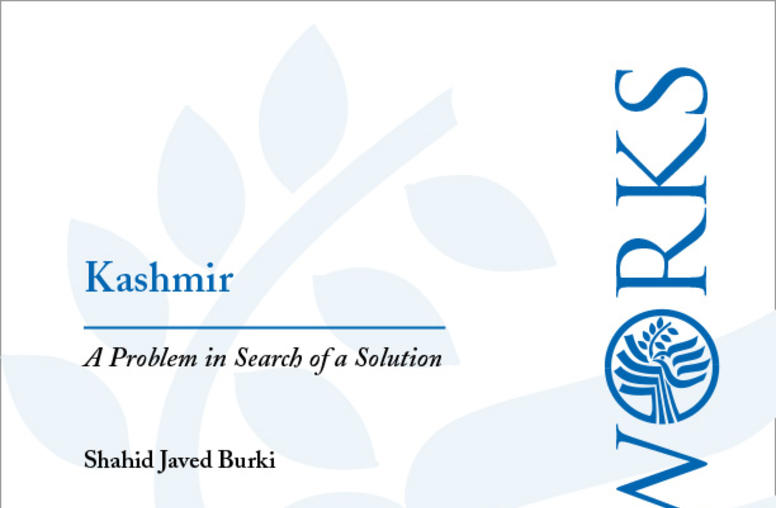
Kashmir: A Problem in Search of a Solution
The ongoing territorial dispute between India and Pakistan over the status of the contested areas of Jammu and Kashmir (henceforth Kashmir) is well known and well documented. This study acknowledges that any resolution of this dispute may be many years in the making.
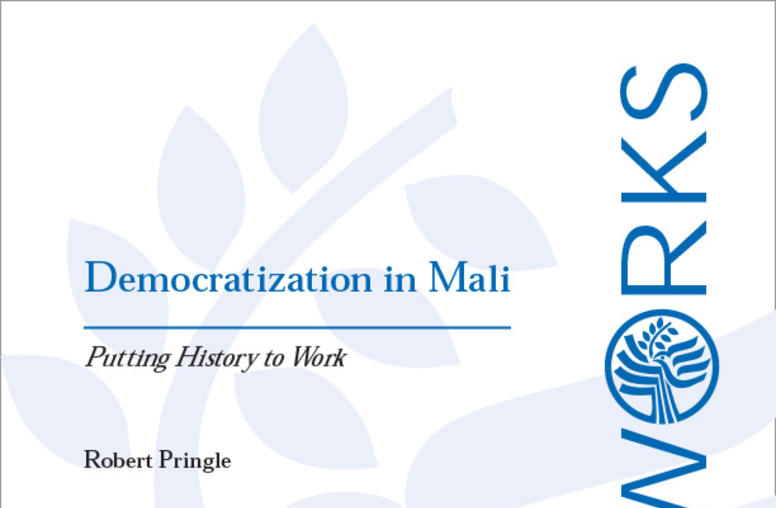
Democratization in Mali: Putting History to Work
Since the 1991 uprising, which saw the ouster of the country's long-standing military dictator and ushered in a democratically elected government, Mali has achieved a record of democratization that is among the best in Africa.
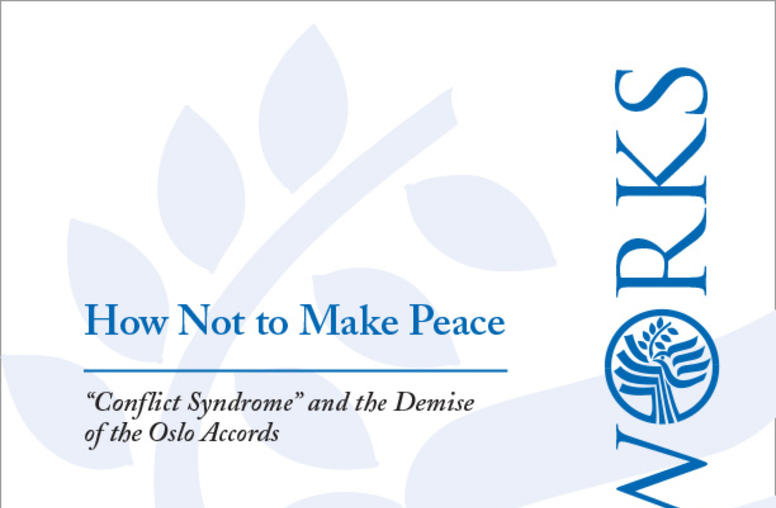
How Not to Make Peace: "Conflict Syndrome" and the Demise of the Oslo Accords
The failure of the Oslo Accords has been attributed to a variety of factors, including deficiencies in the accords themselves, failures of implementation, and the play of domestic politics. These are all critical factors that describe what happened, but they do not explain why each side behaved as it did--that is, why each side made choices that would only increase the likelihood of the accords' failure.
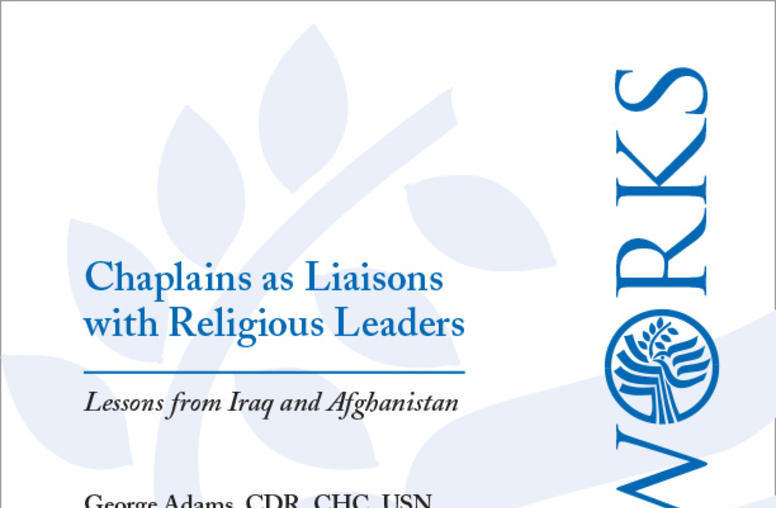
Chaplains as Liaisons with Religious Leaders: Lessons from Iraq and Afghanistan
As this study demonstrates, military chaplains, as clergy and officers, occupy a unique space that blends a secular status and a religious one, making them well suited to serve as intermediaries between military and religious leaders in areas of conflict and postconflict stabilization.
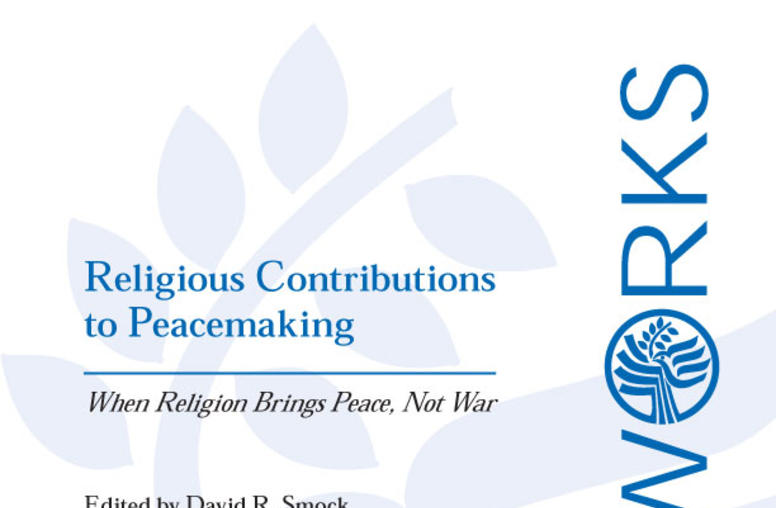
Religious Contributions to Peacemaking: When Religion Brings Peace, Not War
In the popular mind, to discuss religion in the context of international affairs automatically raises the specter of religious-based conflict. The many other dimensions and impacts of religion tend to be downplayed or even neglected entirely. The contribution that religion can make to peacemaking--as the flip side of religious conflict--is only beginning to be explored and explicated.
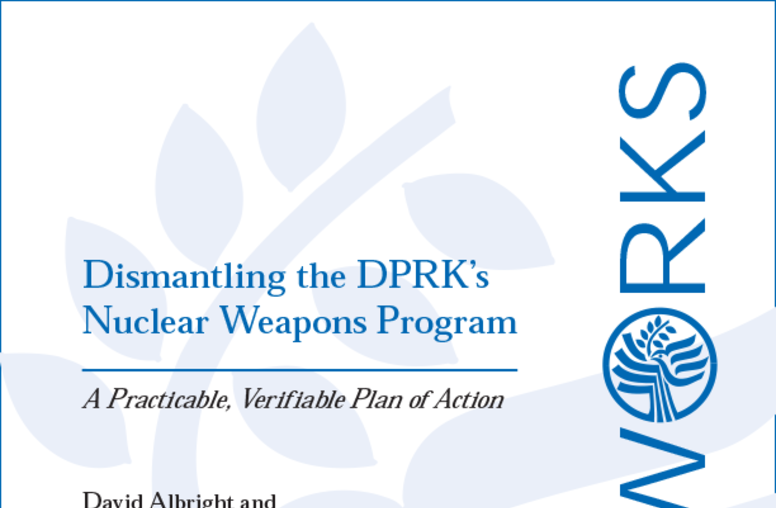
Dismantling the DPRK's Nuclear Weapons Program: A Practicable, Verifiable Plan of Action
Verified dismantlement of the nuclear weapons program of the Democratic People's Republic of Korea (DPRK) can be accomplished successfully. Although difficulties abound in reaching an agreement with the DPRK to achieve this goal, the methods and steps involved in the dismantlement process are well understood.
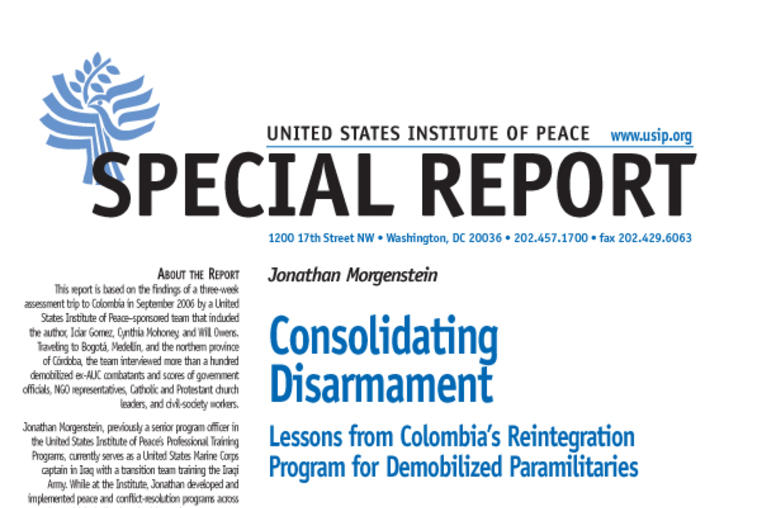
Consolidating Disarmament: Lessons from Colombia’s Reintegration Program for Demobilized Paramilitaries
An essential component of any post-conflict stabilization program is the permanent dismantlement of armed groups and their fruitful absorption into civilian society—this process is known as disarmament, demobilization, and reintegration. Although Colombia continues to wrestle with violent conflict at the hands of multiple armed factions, the country embarked on a major DDR program in 2003 with the goal of permanently ending the threat of violence from one of those armed factions—the United Se...
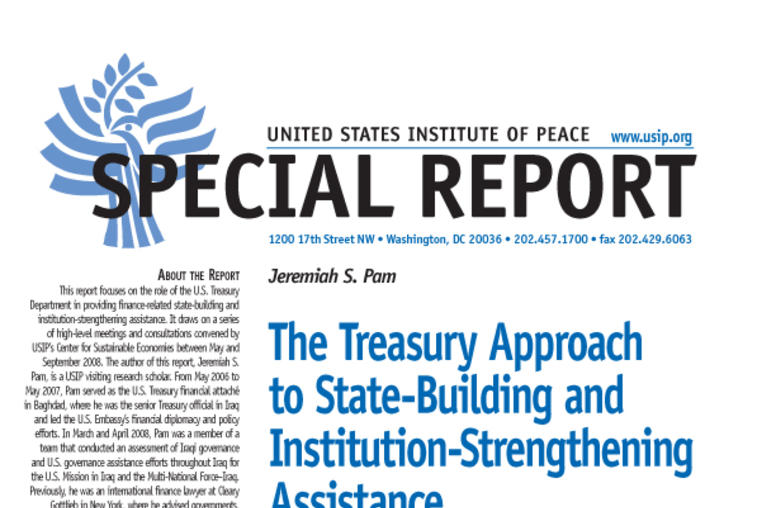
The Treasury Approach to State-Building and Institution-Strengthening Assistance: Experience in Iraq and Broader Implications
Drawing on a series of consultations convened by USIP's Center for Sustainable Economies, author Jeremiah S. Pam focuses on the role of the U.S. Treasury Department in finance-related state-building and institution-strenthening. Specifically, the report identifies key dynamics in the field and discusses aiding local institutions, providing technical assistance, improving interagency coordination and enabling local champions for such efforts.
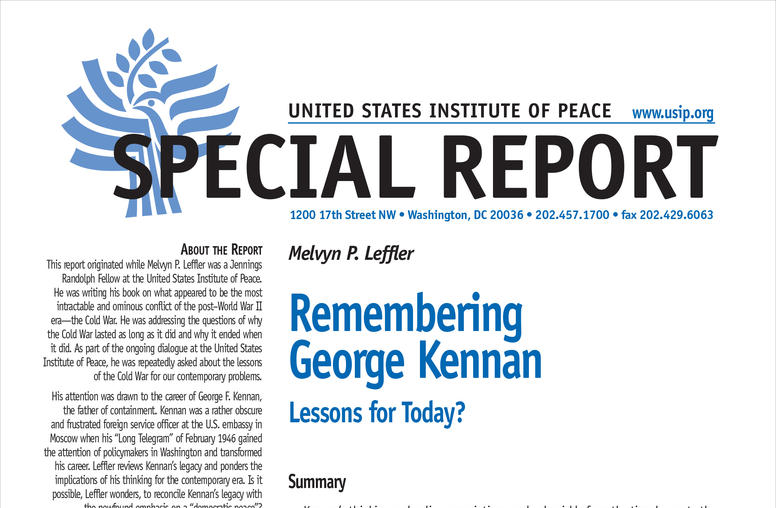
Remembering George Kennan: Lessons for Today?
George F. Kennan, the father of containment, was a rather obscure and frustrated foreign service officer at the U.S. embassy in Moscow when his "Long Telegram" of February 1946 gained the attention of policymakers in Washington and transformed his career. What is Kennan’s legacy and the implications of his thinking for the contemporary era? Is it possible to reconcile Kennan’s legacy with the newfound emphasis on a "democratic peace?"